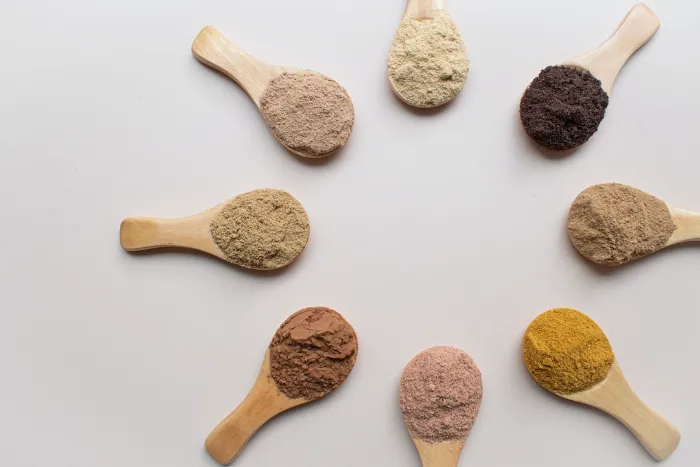Nootropics for Depression: These 3 May Help (According to Research)

-
The Symptoms of Depression
-
Nootropics for Depression
-
Lion's Mane Mushroom
-
L-Theanine
-
Rhodiola Rósea
-
The Bottom Line
Written by: Isabela Malatrasi
Note: As you'll see below, hundreds of millions of people suffer from depression. If you have depression, you are not alone. Help is available and hope is possible. If you are feeling suicidal, please call or text 988 for help if you are in the USA, or use this link to find resources in other countries.
Depression is one of the most painful things anyone can go through.
The World Health Organization (WHO) recently cited an estimate that 5% of adults worldwide suffer from depression, which is nearly 400 million people.
This chronic disease interferes with daily life and normal functioning...
And it can even lead people to take their own life.
So, it's clearly a big problem that can deeply hurt individuals, families, and society at large...
But it looks like more help is on the way.
Because many people suffer from depression, more studies are being conducted to find relief from the symptoms of this disorder.
One of those fields of study is about the effects of nootropics for depression.
Nootropics — sometimes called "smart drugs" — are substances that could boost brain health, increase productivity, and improve memory & cognition.
Important: If you are feeling symptoms of depression, it's very important that you consult your doctor and mental health professional first, before making decisions about your health. You should not use the information in this article as your only source to find relief.
With that said, let's talk about how nootropics might contribute to mental health — plus 3 of these substances that could help relieve depression. 👇
The Symptoms of Depression
Symptoms of depression, or major depressive disorder, can be confusing.
When someone experiences feelings of sadness from time to time, it doesn't mean they have depression — occasional episodes of sadness or anger are normal.
According to specialists, depression has specific ongoing symptoms, like:
Lack of interest and pleasure in most normal activities
Reduced appetite and weight loss or increased cravings for food and weight gain
Tiredness and lack of energy, to where even small tasks take extra effort
Slowed thinking, speaking, or body movements
Feelings of sadness, emptiness, or hopelessness
Thoughts of self harm or suicide
And more
The number of people who suffer from these symptoms like these have been increasing.
To reduce your risk, it's important keep track of your health, eat a balanced diet, move your body, and get outside.
Nootropics for Depression
As mentioned, nootropics are substances that promise to improve brain function.
Things like caffeine, Adderall, and Omega-3 fatty acids are all examples of nootropics.
Alongside psychotherapy and medication, these types substances could help give the mind a boost... and a few could help make up for cognitive deficits experienced during depression.
Let's talk about 3 of them right now:
Lion's Mane Mushroom
Hericium Erinaceus, known as Lion's Mane, is a mushroom that grows on dead tree wood.
Studies show it could help improve cognitive function.
It's also been found to promote positive nerve and brain health.
More research is being done, but alongside its antioxidative, anti-cancer, anti-inflammatory, antimicrobial, anti-diabetic properties...
This fungus is also a potential treatment of mild depression or anxiety.
L-Theanine
L- Theanine is an amino acid often found naturally in green tea leaves.
Research shows that it may help to reduce stress through something called the inhibition of cortical neuron excitation.
This substance has also been shown to be beneficial for depressive symptoms, sleep disturbance, cognitive impairment, and anxiety.
Rhodiola Rósea
Rhodiola Rosea — also known as golden root or Rose root — is an herb which grows naturally in the wild arctic of Europe, Asia and North America.
For centuries, it was used in traditional medicine to treat headaches and the what was called "hysteria," or uncontrolled emotional states.
These days, it's often sold as a dietary supplement or adaptogen to help prevent/reduce stress, increase attention, and fight fatigue.
According a study, Rhodiola Rosea influences the release of stress hormones while boosting energy metabolism, which could relieve symptoms of burnout.
It also has other proven health benefits — including reducing symptoms of depression & anxiety, fighting aging & cancer, and improving exercise performance.
The Bottom Line
Depression is a serious health issue that still needs much more research.
So, it's good to keep an open mind as new information comes out.
When combined with a healthy diet and exercise, the nootropics mentioned here could help with depression by improving brain function and mood.
---
At UltimateHuman.Org, we talk about what you need to look, feel, and be your best self.
For more on the latest in biohacking, anti-aging, longevity, and health... Join the community by clicking below 👇
-
The Symptoms of Depression
-
Nootropics for Depression
-
Lion's Mane Mushroom
-
L-Theanine
-
Rhodiola Rósea
-
The Bottom Line




